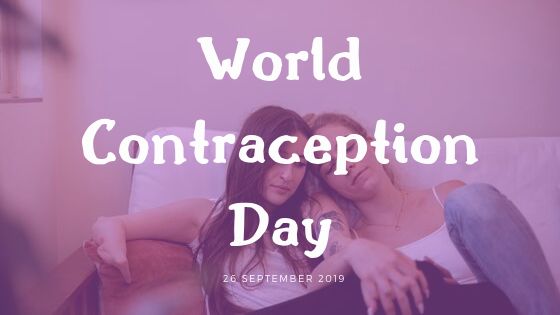In honour of the World Contraception Day on the 26 September, Alice and Francesca decided to sit down and compare the arguably different contraception frameworks in their native Sweden and Poland. To paint a picture of the two different realities, they divided their conversation into three parts: education, access and the role of men.
Knowledge is (em)power(ment)!
A: Reproductive rights have been taught in Swedish schools since 1955, mainly in biology class. Sexual education goes beyond contraception by including norms and relations, but studies show that the quality of education is varied. According to the Swedish Public Health Agency, only 19 % of women consider that they got satisfactory knowledge about reproduction in these classes. To fill this gap, there are Youth Guidance Centers. Since 1975, they help 12-25 year-olds with contraception, STDs and more recently, mental health.
F: But at least you had education about contraception in the first place. In Poland, we have a strong stigma of anything related to communism during which family planning was well-managed. The attempt to break away from this political era lead to the erasure of sexual education as a school subject. Additionally, as a result of our strong ties to catholicism, children in Poland learn about reproduction in classes called “Preparation to live in a family”, which alludes to traditional values such as virginity and post-marital sex. Consequently, there is a shamefulness surrounding sex and an idea that contraception is only for “loose” women. Women don’t get properly taught about contraception and most of the education comes from NGOs and social media.
The excess of access?
F: When it comes to the actual use and access of contraception, what do Swedish women choose?
A: There are surprisingly few statistics on the matter, but until 2014, gynecologists were encouraged to mainly recommend the pill, which I have had a bad experience with. I went to different gynecologists who always recommended the pill, although I asked for other forms of contraception. New guidelines issued in 2016, however, increasingly encourage the use of other forms of contraception. Access to contraception until the age of 21 is completely free of charge, and until the age of 26, you pay the equivalent of 10EUR yearly for any method of contraception thanks to our universal health care system. The universal health care system usually covers certain brands of contraception, often the cheapest. Until that age, you can also visit the Youth Guidance Centres free of charge.
F: In Poland, the statistics are quite frightening. According to a report, Poland is the last country in Europe in access – understood as the possibility to get and afford a prescription – to contraception, even after Russia and Turkey. Access has decreased from 44% to 32,5% under the current government of Law and Justice. The main barrier is getting a prescription. Since 2017, the morning after pill needs to be prescribed by a gynecologist. Another issue is, of course, the price of contraception which can be disproportionately high, especially for more advanced and therefore more comfortable methods. To give you a comparison: my hormonal pills in Poland would cost me 10EUR per month – here in Belgium where salaries are much higher, the same buys me 6 months of protection. Most importantly, however, the clause of conscience poses huge problems as a gynecologist may use it to refuse to prescribe you any contraception, even the morning after pill. This, of course, derives directly from catholic mentality and may result in undue shaming while dissuading women from seeking proper gynecological care.
A: The clause of conscience does not exist in Sweden but was actually at the heart of a recent heated debate on a court case. A nurse went to court because she was denied a job as she notably refused to provide the morning after pill due to her religious beliefs. The court ruled that she had not been discriminated against based on her religious beliefs, but for refusing to perform the duties required. To me, the public criticism against the nurse that followed signalled the importance Swedish society attaches to women’s rights to decide over their own bodies.
Men versus contraception
A: I love that you called this section men VERSUS contraception.
F: Sometimes it just feels like it’s this magical thing they don’t even have to understand…
A: Yeah, it’s just there…
F: Just as much as women just leave it to the guy to put on a condom, men leave it up to us to take care of hormones. It seems we are not used to see sex and contraception from each other’s points of view. Speaking of which, a study claimed only 52% of men find contraception to have a positive influence on women’s lives, which is ridiculous (Alice laughs). But what we wanted to talk about was men’s contribution to contraception. I had a very positive experience in that department – I agreed very early on with my long-term boyfriend to equally share all the contraception-related expenses. Have you ever entered a similar arrangement?
A: No, but I think it’s mostly because access to cheap, if not free, contraception is so easy in Sweden. For me, the financial burden was a non-problem. Truth be told, it never occurred to me before.
F: You know that there are different ways to share the burden that are non-financial? Think about the psychological weight of arranging all your appointments, tests and prescriptions – not even to mention the issue of timely taking of the pill. These are piled up on top of our daily stress and hassle. Encouraging guys to just simply help in making an appointments to renew prescriptions could go a long way.
A: Absolutely!
F: Interestingly, women’s responsibility for contraception originated as a positive development. It started as a way to give women agency over their pregnancies. It begun with popularisation of diaphragms in the beginning of the 20th century, when marital rapes were still very common. It was entirely up to men to decide about protection which relied entirely on condoms. I think it’s ironic that what started as a way to give women control over their own reproductive rights, ended up shifting the burden almost entirely on us. But what about male contraceptives?
A: Actually, something that has been creating a lot of buzz in Sweden these days is the invention of a hormonal cream that men can just smear on their shoulders…
F: Wait, are you trying to say that women have to go through all the side effects of hormonal contraception and there is a cream?
A: Yes! And its only side effect is that it decreases sperm production to 1m (which renders men temporarily impotent). The point is that people really don’t care about the physiological effects contraception has on women, rathering focusing on how safe it is for men. So far it seems that the only bad effect of this new method is the decrease in sperm count.
F: And that’s so emasculating…
A: Is there anything of this sort emerging in Poland?
F: Literally nothing. The notion of men being responsible for contraception is so far fetched, which of course is a derivative of our political and religious environment. No such discussion will enter the mainstream as long as the current government is in power.
A: This only shows how politicised the question of reproduction can be. It’s sad that even in 2019 these gaps in education and access for both women and men remain a major concern.






Average Rating